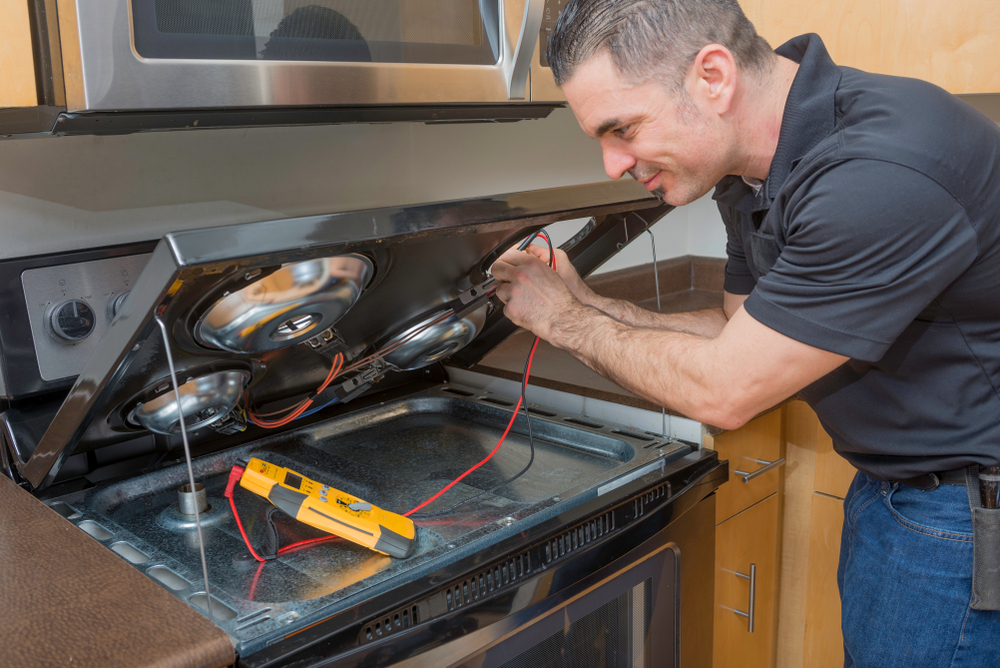
Ensuring that appliances are in good working order before a new tenant moves in is crucial for maintaining property value and tenant satisfaction. In this guide, we’ll explore the steps and considerations involved in having appliances inspected prior to a tenant’s arrival.
Why Inspections Are Important
Maintaining Property Value
Having appliances inspected before a tenant moves in can help preserve the value of your property. Well-maintained appliances are less likely to cause issues that could lead to costly repairs or replacements in the future. Regular inspections can catch potential problems early, allowing for timely repairs.
Ensuring Tenant Satisfaction
A smooth transition for a new tenant starts with a functioning home. Appliances that are in good working order contribute to a positive living experience and can help build a good landlord-tenant relationship. Addressing appliance issues before a tenant moves in can prevent complaints and enhance tenant satisfaction.
Steps to Inspect Appliances
1. Create a Checklist
Before scheduling an inspection, it’s important to create a detailed checklist of all appliances in the rental property. This list should include major appliances such as refrigerators, ovens, dishwashers, and washers and dryers, as well as any smaller appliances like microwaves or garbage disposals. A comprehensive checklist ensures that no appliance is overlooked during the inspection.
2. Hire a Professional Inspector
While you can perform a basic visual check of appliances, hiring a professional inspector can provide a more thorough assessment. Look for inspectors who specialize in appliance inspections or property maintenance. A professional will have the expertise and tools to identify issues that might not be immediately obvious.
3. Test Each Appliance
Ensure that each appliance is tested for functionality. For instance, check that the refrigerator maintains a consistent temperature, the oven heats evenly, and the dishwasher cleans dishes effectively. Make sure to test all features of the appliance, such as timers, settings, and controls, to ensure everything is working properly.
4. Check for Safety Issues
Safety is a top priority when inspecting appliances. Look for signs of wear and tear, such as frayed cords or rusted parts, which could pose safety risks. Verify that all appliances are properly grounded and that gas appliances are leak-free. Address any safety concerns immediately to prevent potential hazards.
5. Document the Inspection
It’s essential to document the results of the appliance inspection. Take detailed notes on the condition of each appliance and any repairs or replacements that are needed. Photographs can also be useful for recording the condition of the appliances before the tenant moves in. This documentation will serve as a reference in case any issues arise later.
Common Issues Found During Inspections
1. Electrical Problems
Electrical issues are a common problem with appliances. Look for signs of faulty wiring, tripped circuit breakers, or malfunctioning electrical components. These problems can often be resolved by a professional electrician or appliance repair technician.
2. Plumbing Leaks
For appliances that use water, such as dishwashers and washing machines, check for plumbing leaks or water damage. Ensure that hoses and connections are secure and that there are no signs of leaks around the appliance.
3. Wear and Tear
Appliances may show signs of wear and tear, such as worn-out seals, damaged racks, or uneven heating. Address these issues promptly to prevent them from affecting the appliance’s performance or longevity.
Should I Have Appliances Inspected Before a New Tenant Arrives?
Peace of Mind for Landlords
Having appliances inspected before a new tenant arrives provides peace of mind for landlords. It ensures that all appliances are in good working order and reduces the likelihood of unexpected issues. This proactive approach can save time and money in the long run.
Avoiding Disputes
A thorough appliance inspection can also help avoid disputes with tenants. By documenting the condition of appliances before the tenant moves in, you establish a clear record of their state. This documentation can be helpful in resolving any disputes that may arise regarding appliance condition or functionality.
Conclusion
Having appliances inspected before a tenant moves in is a crucial step for maintaining property value and ensuring tenant satisfaction. By following a structured inspection process, addressing common issues, and documenting the results, landlords can ensure a smooth transition for new tenants and avoid potential disputes. Remember, a well-maintained property not only enhances the tenant’s experience but also protects your investment in the long run.
